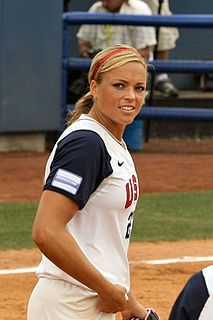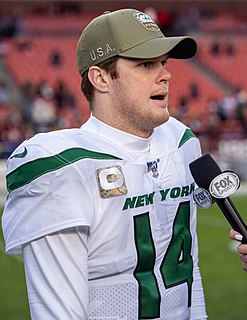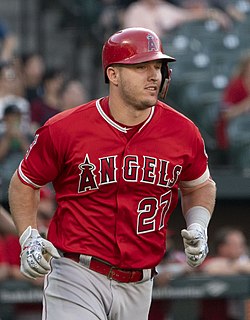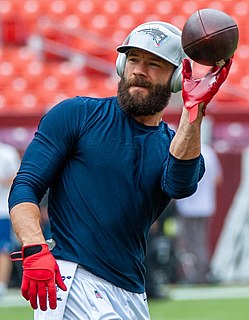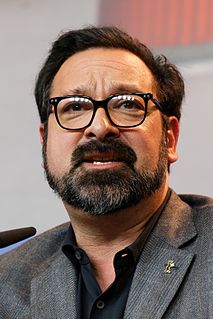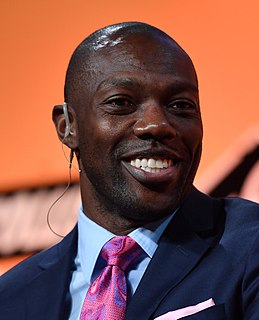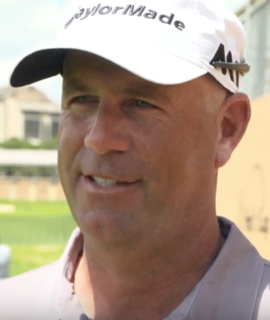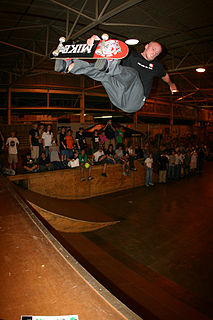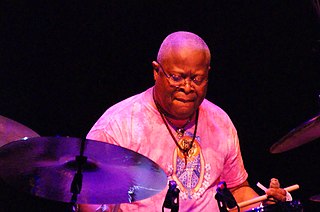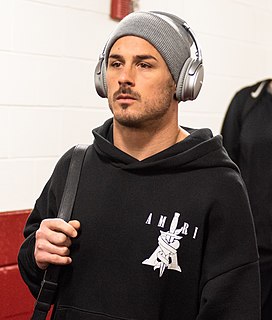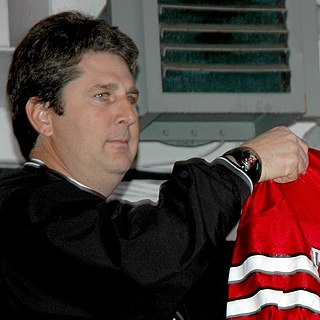A Quote by Jennie Finch
I think that when young players really see their game rise next level, it's when practices are like competition and there's no separation there. Of course, there are adrenaline and the butterflies; you don't have that so much in practice. You want to fake yourself out and try to get them there because you want to be as close to that game mentality as you can when you step on that field every single day whether it's practice or in your backyard or down the street with your dad.
Quote Topics
Adrenaline
Backyard
Because
Butterflies
Close
Competition
Course
Dad
Day
Down
Every
Every Single Day
Fake
Field
Game
Get
Level
Like
Mentality
Much
Next
Next Level
Out
Players
Practice
Practices
Really
Rise
See
Separation
Single
Single Day
Step
Street
Them
Think
Try
Want
Whether
Young
Young Players
Your
Your Dad
Yourself
Related Quotes
The first professional game of your career is obviously the biggest, but you still get the jitters, you still get the adrenaline rush before every game. A lot of people don't realize that, but it's true. I have always told myself that if you don't feel those nerves and you're not having fun, you shouldn't be playing. And I always enjoy the competition, the adrenaline rush before a game. And just competing with your buddies at the highest level, every day.
One of my constant reminders was, "End practice on a happy note." I wanted the boys to want to come out to practice, and I wanted them to get a certain amount of pleasure out of basketball. It's a game. It should be fun. So I always tried to counterbalance any criticism in practice with a bit of praise. I wanted my players to feel that the worst punishment I could give them was to deny them the privilege of practicing. If they did not want to practice, I did not want them there.
If I can't practice, I can't practice. It is as simple as that. I ain't about that at all. It's easy to sum it up if you're just talking about practice. We're sitting here, and I'm supposed to be the franchise player, and we're talking about practice. I mean listen, we're sitting here talking about practice, not a game, not a game, not a game, but we're talking about practice. Not the game that I go out there and die for and play every game like it's my last, but we're talking about practice man. How silly is that?
We're sitting in here, and I'm supposed to be the franchise player, and we in here talking about practice. I mean, listen, we're talking about practice, not a game, not a game, not a game, we talking about practice. Not a game. Not, not... Not the game that I go out there and die for and play every game like it's my last. Not the game, but we're talking about practice, man. I mean, how silly is that?.. And we talking about practice. I know I supposed to be there. I know I'm supposed to lead by example... I know that... And I'm not... I'm not shoving it aside, you know, like it don't mean anything. I know it's important, I do. I honestly do... But we're talking about practice man. What are we talking about? Practice? We're talking about practice, man.
This is the practice school of writing. Like running, the more you do it, the better you get at it. Some days you don't want to run and you resist every step of the three miles, but you do it anyway. You practice whether you want to or not. You don't wait around for inspiration and a deep desire to run ... That's how writing is too ... One of the main aims in writing practice is to learn to trust your own mind and body; to grow patient and nonaggressive.
They'll try to apply the rules of the day to the game, where you can't touch your board with your hands, or you can't step off your board, etc and I want nothing to do with it. It's like a game from a different planet or something and it's hard for me to relate to anybody who would think of skateboarding in such a narrow way.
So, the next time you're out working on your game and they pass you the rock, don't just take it to the hole. Take it to the next level. Don't just bend rims. Bend expectations. Let them see you and feel you and by the very virtue of your love, the truth in your game, they will hear you. Let your game speak.
